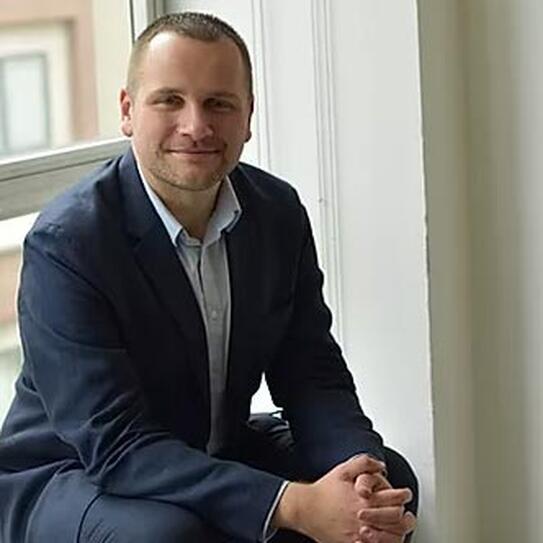Patryk Perkowski

As a first-generation college student, the path to a PhD was not clear-cut for Patryk Perkowski. His family immigrated to the United States in the early 1990s and neither of his parents had a college degree. For Patryk, pursuing a higher education was important and with an interest in industrial relations, the choice to pursue doctoral studies at Columbia Business School was obvious.
“The primary reason I chose Columbia was the School’s strong faculty,” Perkowski says. “Columbia has a number of world-renowned scholars working on industrial relations, corporate governance, hiring, and non-monetary incentives at work. Moreover, it was clear from my campus visit that the faculty were extremely invested in the success of their students, and I knew this was the academic community that I wanted to join.”
Perkowski is capitalizing on that faculty involvement. His research interests include industrial relations, unfair labor practices, hiring, and causal inference.
“Professor Bo Cowgill and I are working on a paper that explores how labor market intermediaries aggregate candidate and hiring manager preferences to decide who receives an interview,” Perkowski says. “I’m also working on another paper with Professor Bruce Kogut and fellow PhD student Fabrizio Dell’Acqua that analyzes the direct and spillover effects of automation on firms.”
Soon, Perkowski will begin work on his dissertation, which may focus on unfair labor practice claims brought against by US firms. “We are currently seeing a resurgence in the labor movement, and I want to explore how businesses have historically and recently responded to worker demands for unionization and better working conditions,” he says. “Understanding the motivation behind, incidence of, and repercussions of unfair labor practices has important implications for industrial relations.”
Perkowski says the cross-disciplinary nature of the CBS PhD program also appealed to him, since industrial relations exists at the intersection of economics, sociology, public policy, and business. But again, it’s the personal support and relationships with faculty—who are also experts in their fields—that he feels will most help him achieve his goal of becoming a business school professor engaged in reversing unfair labor practices in the real world.
“The faculty here are fully invested in both the professional and personal successes of their students, and they work hard to maximize our potential,” Perkowski says. “They are also generous with their time and always happy to help and offer support during tough setbacks. Most of all, CBS faculty serve as great role models, and they have inspired me to do research that is rigorous, timely, and can help improve the world.”